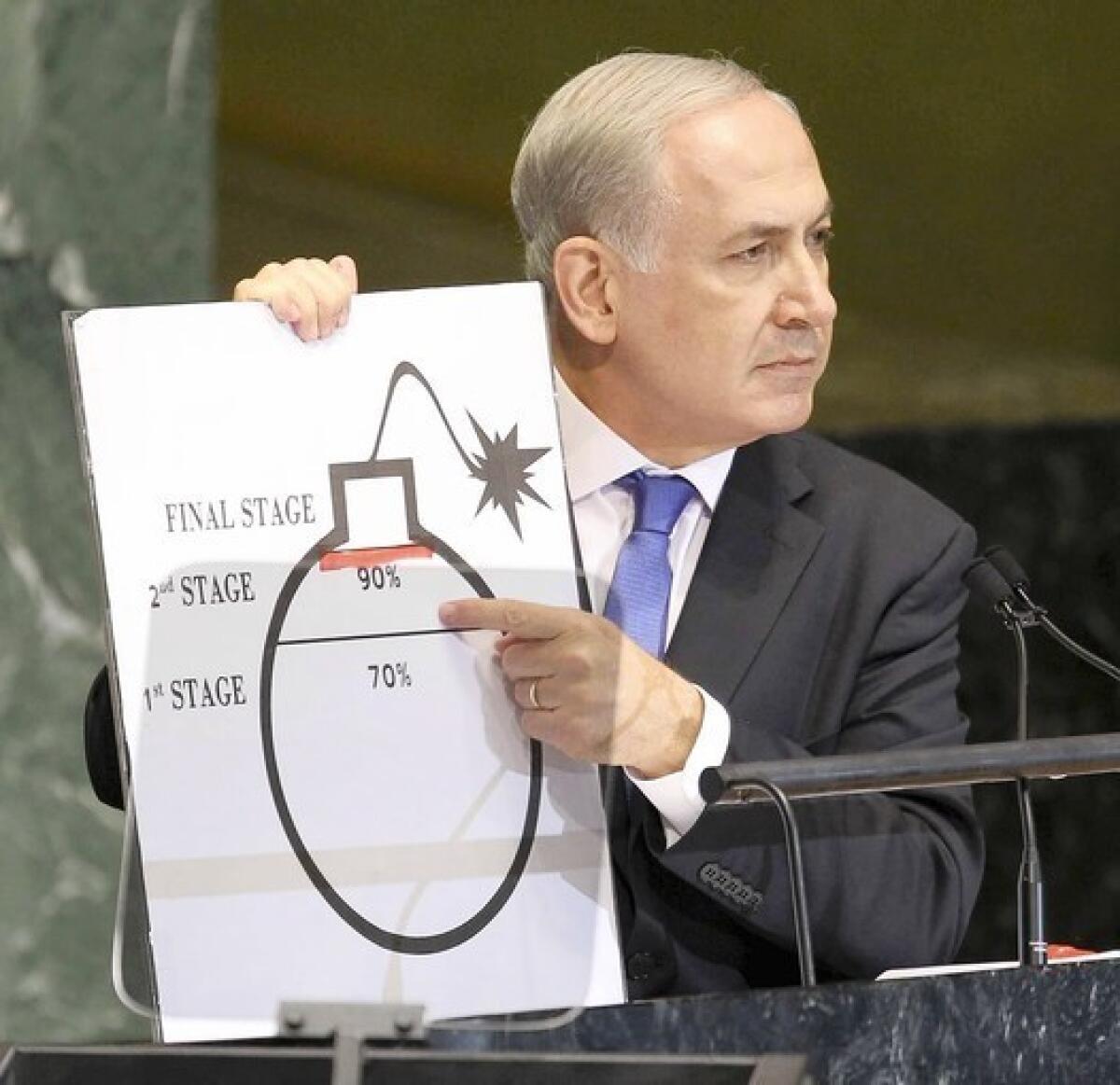Letters: Peace and peril in the Mideast

Re “Defusing a ‘detonator’ state,” Opinion, Sept. 25
Yes, Israel has a military establishment, but it’s not, as Patrick Tyler writes, “prone to propagate a vision of constant threat and peril.” The threat is real.
Israel has been invaded; it has faced constant suicide attacks; Hamas fires rockets into civilian areas in the south; and the Jewish state has been hit by thousands of missiles from Lebanon — missiles that were replenished by Iran and Syria. Iran’s nuclear threats are but the latest peril.
It’s too bad Israel can’t devote more of its resources to its high-tech economy, which is among the world leaders in medicine, energy and other research, but survival is survival. Israel lives in a tough neighborhood, one in which it has never sought to destroy its neighbors while its neighbors have sought to destroy it but couldn’t.
Joseph Gold
Redondo Beach
U.S. support for “detonator” states — in the Middle East and elsewhere — is detrimental to the interests of the American people. Subsidizing those states and their military establishments takes resources from the U.S. and complicates our foreign policy. Meanwhile, our government is deeply in debt and many Americans face economic insecurity.
Spending billions to support detonator states, given our limited resources, can only be explained by the lobbying efforts, campaign contributions and the games of influence played on our politicians by special-interest cartels.
Luis Suarez-Villa
Irvine
Tyler’s thesis that Israel has chosen not to develop its negotiating and compromising capacity in favor of a militaristic approach to foreign policy overlooks three historical events.
In 1977, when President Anwar Sadat of Egypt decided that it was time for peace, Israeli negotiators worked with Egypt to hammer out a treaty. In 1994, when King Hussein of Jordan decided that it was time for peace, a treaty was produced quickly. In 1999, when the Palestinian Authority decided that peace was desirable, a treaty was worked out that Palestinian leader Yasser Arafat ultimately rejected.
Israel cannot negotiate with people who don’t want to. On the other hand, when the opposite side is ready for peace, Israel’s diplomatic and military leaders have repeatedly shown themselves ready to make it happen.
Frederick Landau
Los Angeles
ALSO:
Letters: A workable L.A. pot policy
Letters: The Kennedy Center’s woman gap
More to Read
A cure for the common opinion
Get thought-provoking perspectives with our weekly newsletter.
You may occasionally receive promotional content from the Los Angeles Times.










